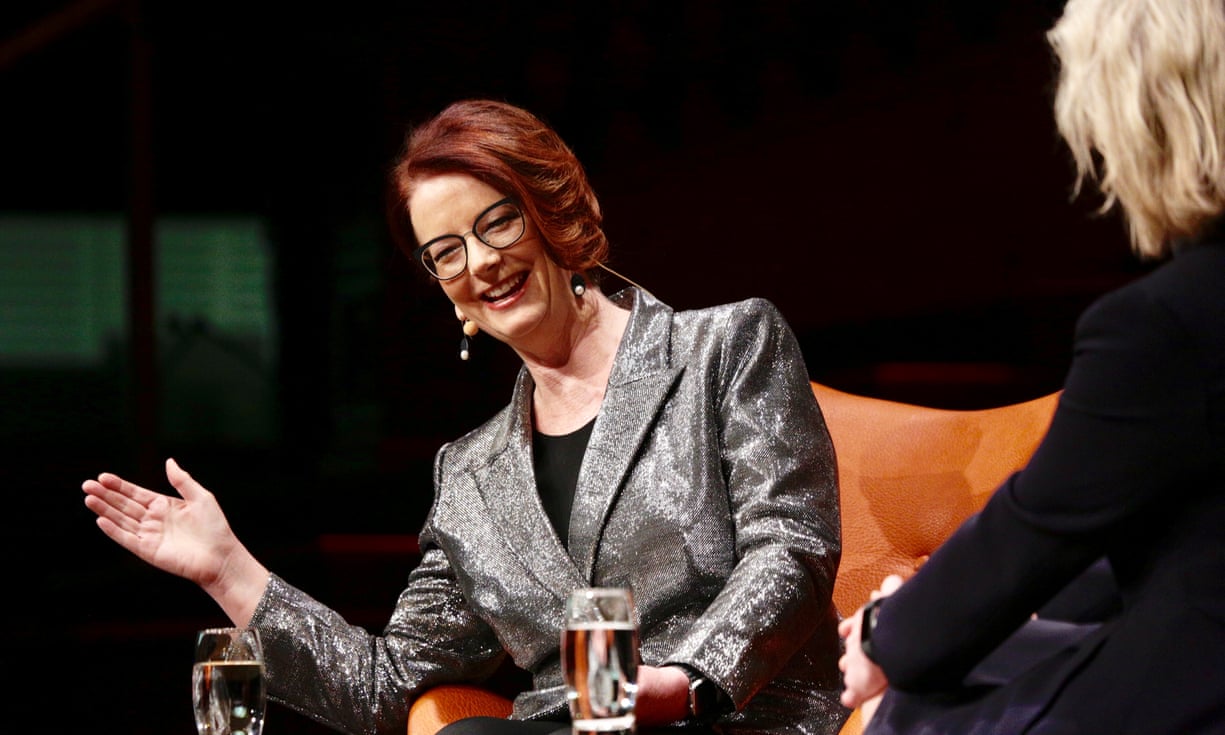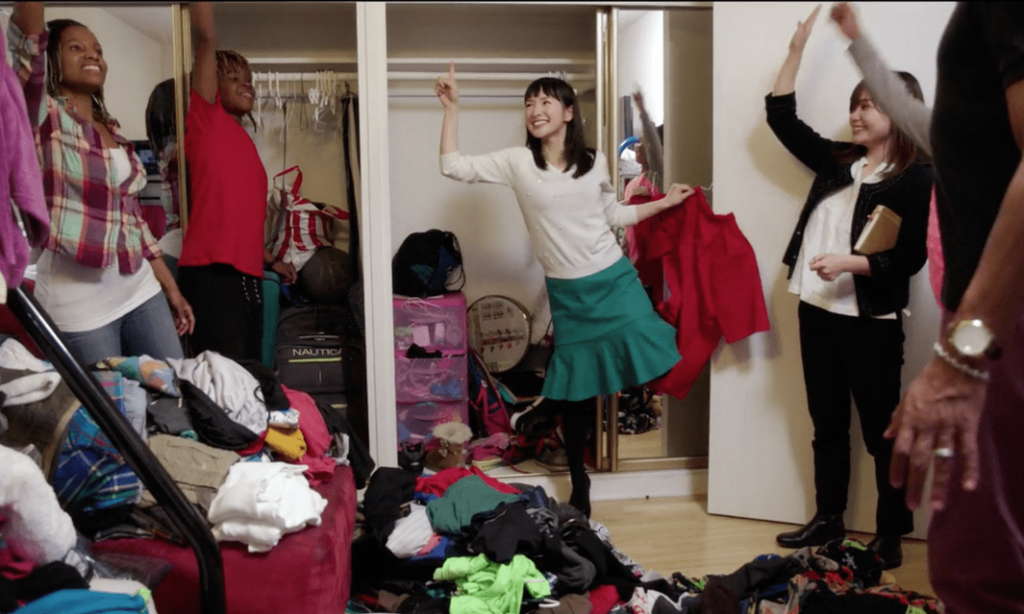Former Australian PM discusses the role of gender in leadership at Sydney writers’ festival
Julia Gillard has called for the #MeToo movement to broaden out to include ordinary women who face sexual abuse, exploitation and harassment in the workplace.
The former Australian prime minister praised the movement for its energy, activism and the way it is bringing perpetrators to justice, describing it as the latest manifestation of “a growing wave of feminist energy” that would “change our societies most profoundly over the next decade.”
But she said it was time for the movement to grow. “#MeToo is not just about famous people … but where #MeToo actually ends up having meaning is for the people who clean the building like this one who probably work for a cleaning contractor. [They] may well be migrant workers, workers without much inherent labour market power. If #MeToo is going to ultimately make the big difference we all want to see, it’s got to mean something for that woman who gets harassed in her workplace.”
Gillard was speaking at a sold-out Sydney writers’ festival session on power, gender and authority, in conversation with the ABC journalist Laura Tingle.
During the wide-ranging, hour-long conversation, Gillard discussed the role of gender in the leadership of Hillary Clinton, Theresa May and Jacinda Ardern, the latest research on unconscious bias and her life after Australian politics.
Gillard has recently returned from London where she launched the Global Institute for Women’s Leadership sponsored by Kings College London. She is the institute’s inaugural chair. She also chairs the Global Partnership for Education in the UK and Beyond Blue in Australia.
She delighted the clearly enamoured audience with the incongruencies of her post-politics life, including working closely with former opponents. These include her unlikely friendship with the previous chair of Beyond Blue and former Victorian premier Jeff Kennett, the perils of having current health minister Greg Hunt on speed dial and and her frequent – and pleasant – encounters with fellow former prime minister John Howard in US airport lounges.
Tingle asked Gillard how gender had affected Clinton’s failed 2016 US presidential bid. The two leaders have worked closely together in recent times and have become friends, and Gillard will talk alongside Clinton at events in Sydney and Melbourne next week.
Gillard said Clinton’s political ascendancy was an example of what could happen to women when they reached for the top job. She pointed out that Clinton was at the height of her popularity when she was US secretary of state, seen to be successfully dealing with demanding global issues, gracious in her working relationship with former political opponent Barack Obama but still very much a deputy leader.
It was when she put her hand up for the top job that things changed, said Gillard. “I think it’s a very common thing for women to be viewed much more favourably when they are number two, number three, number four in the hierarchy, rather than when they’re challenging for number one.”
She ascribed this change in popular perception to unconscious bias, when women are seen to be going against the feminine stereotypes of being empathetic and nurturing by being commanding. Even worse, she said, this breaking of stereotypes seemed to give permission for increasingly savage criticisms such as the “Lock Her Up” chants at Donald Trump rallies in the US. Many in the audience were probably reminded of the hostility Gillard herself faced when she was in power.
Gillard also reflected on the role of gender in the very different current public perceptions of May and Ardern. Through her discussions with other female leaders around the world, the former Australian prime minister said all noted an increased focus on their appearance, family structures, and likability compared with that of their male counterparts. “I actually think the political permission, the space that female politicians get is less,” said Gillard.
And so, while Gillard thought the UK leader had made some errors, May was dealing with the “incredibly wicked public policy problem” of Brexit, which fed into her lack of popularity. She added: “I do think that in the treatment of her, there are quite a few factors and there are some threads of gender.”
On the other hand, Ardern, the recently elected New Zealand leader, is enjoying a warm reception with mostly positive interest in her pregnancy. However, Gillard was concerned that there could be a backlash. “I worry about what that will look like in 12 months time. The first time she’s not available for something, will people put that down to, ‘Well if we had a prime minister who didn’t have a young baby, they could have gone to that event’. I think that there could easily be another side there.”
Published in Guardian Australia on 6 May 2018 as ‘Growing wave of feminist energy’: Julia Gillard on Clinton, Ardern and #MeToo



